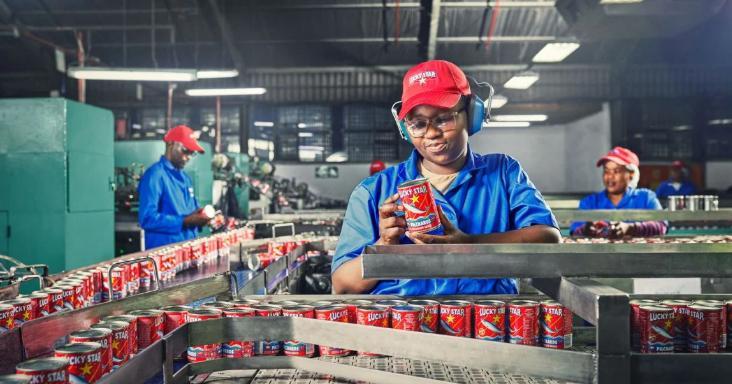Africa-Press – South-Africa. Lucky Star-owner Oceana took a significant hit from the normalisation of fish oil prices in the United States, which saw fish oil prices halve.
While a strong operational performance and a notable turnaround in its Wild Caught Seafood segment offset some of this impact, the food producer still recorded a significant drop in earnings and profit.
Oceana is a global fishing and food processing company that operates across 36 countries. It is Africa’s largest fishing company with a history dating back over 105 years.
Some of the brands in Oceana’s portfolio include Lucky Star, which is known for canned pilchards, Daybrook, the company’s fishmeal and fish oil business, and Wild Caught Seafood, which exports hake, lobster, squid and horse mackerel worldwide from South Africa.
On Monday, 24 November, Oceana released its results for the 2025 financial year ended September 2025, which revealed weak financial results.
Oceana’s group revenue declined by 0.7% to R10 billion, which the company attributed to the normalisation of global fish oil prices following the recovery of the Peruvian anchovy resource.
The company previously explained that the recovery in Peruvian anchovy biomass during the period led to a correction in fish oil prices, which halved compared to the 2024 financial year.
This significantly impacted its Daybrook brand, which is Oceana’s fishmeal and fish oil business.
This business is diversified across two geographies, with operations in both the United States and South Africa.
The company’s operating profit decreased by 23.2% to R1.25 billion, while profit after tax decreased by 35% to R724 million, mainly due to higher interest costs.
The group’s headline earnings per share declined by 38.4% to 564.8 cents per share, while its earnings per share were down 38.9% to 562.4 cents.
Despite fish oil prices halving, Oceana said its performance was supported by a strong turnaround in the Wild Caught Seafood segment and solid Lucky Star Foods results.
These factors contributed to the company’s African business increasing its operating profit by 58%.
“We have controlled what we can well, with most key indicators improving,” Oceana CEO Neville Brink said.
“The African and US fishmeal and fish oil businesses delivered strong operational performances, but softer global fish oil prices impacted revenue and profitability.”
“Lucky Star Foods was solid as ever in a tough operating environment, and the Wild Caught Seafood segment delivered a notable turnaround, with operating profit significantly higher. This demonstrates the resilience of our diversified business model.”
Lucky Star shines
Brink said demand for Lucky Star as an affordable, available source of protein contributed to its performance. Despite a challenging consumer environment, sales volumes grew by 2% to 9.5 million cartons.
He explained that strong export demand and expansion into canned meats drove higher sales, growing canned food’s share to nearly 10% of Lucky Star’s total sales volumes.
In addition, a 24% increase in the number of cartons produced resulted in lower unit production costs at the local fish canneries.
In the 2024 financial year, production was impacted by an extended shutdown for factory upgrades.
Therefore, production yields rose by 6%, driven by efficiency gains achieved through upgrades and a steady supply of frozen fish imports.
Oceana’s African fishmeal and fish oil business also delivered a 25% increase in production volumes, with better industrial fish landings, higher pilchard trimmings from the canneries and improved fish oil yields.
However, the company said a 36% increase in sales volumes was negated by US dollar prices declining 9% for fishmeal and 53% for fish oil.
In addition, Oceana’s Wild Caught Seafood segment delivered strong results, with its hake business producing an excellent performance and record earnings.
The company explained that the benefits of its investment in the hake fleet were evident, with more reliable vessels able to spend more days at sea. This allowed the fleet to achieve 33% higher catch volumes, driving unit catch costs lower.
This saw the segment’s sales volumes increase, and strong European demand resulted in improved export prices for hake, contributing to the division’s strong performance.
Oceana declared a total dividend of 285 cents per share, 42.4% lower than the previous year.
For More News And Analysis About South-Africa Follow Africa-Press






